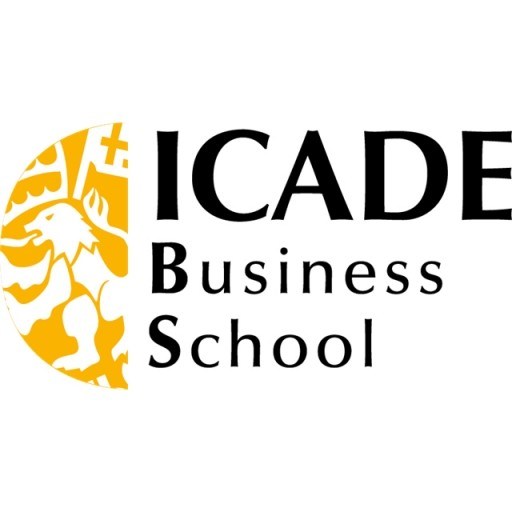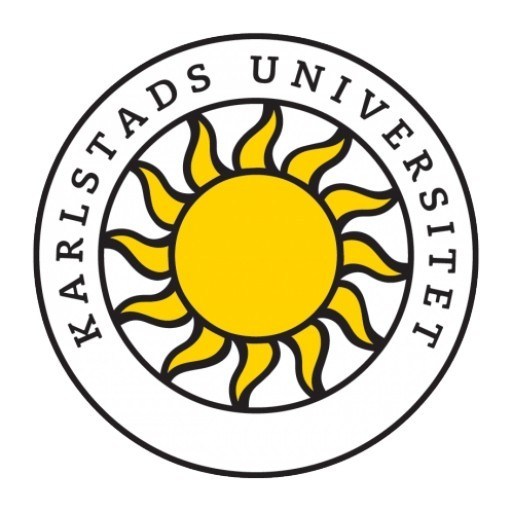Photos of university / #univcadiz
Conflict Management, Prevention and Intervention through Mediation is a specialized program offered by the University of Cádiz that aims to equip students with comprehensive skills and knowledge necessary to effectively handle conflicts in various settings. This interdisciplinary program combines theoretical foundations with practical techniques in conflict resolution, emphasizing mediation as a central tool for peaceful dispute management. Students will explore the social, psychological, and legal aspects of conflicts, gaining insights into the causes and dynamics of disputes across different contexts such as workplaces, communities, and international environments.
The curriculum covers core topics including communication skills, negotiation techniques, emotional intelligence, cultural sensitivity, and ethical considerations in mediation. Participants will engage in practical workshops, role-playing exercises, and case studies to develop their mediational competencies and learn how to facilitate dialogue between conflicting parties. The program also emphasizes the importance of prevention strategies, helping future mediators identify early warning signs of escalation and implement effective measures to avoid conflicts before they intensify.
Through a combination of lectures, experiential learning, and internships, students will be prepared to work as mediators in diverse sectors, including legal mediation, education, healthcare, social services, and corporate settings. The program also emphasizes interdisciplinary collaboration, encouraging students from different backgrounds such as law, psychology, social sciences, and communication to share perspectives and approaches.
Graduates of the Conflict Management, Prevention and Intervention through Mediation program will be capable of designing and implementing conflict resolution processes, mediating disputes, and promoting dialogue and understanding. They will be equipped not only to intervene in conflicts but also to contribute to the development of a more peaceful and cooperative society. This program aims to foster skills vital for career advancement in fields where interpersonal and intergroup relations are critical, making it an invaluable educational offering for individuals committed to fostering harmony and resolving disputes constructively.
Program Content for Conflict Management, Prevention and Intervention through Mediation
The Conflict Management, Prevention and Intervention through Mediation program at the University of Cádiz is designed to equip students with comprehensive knowledge and practical skills necessary for effectively handling conflicts in various settings. This interdisciplinary program combines theoretical frameworks, legal principles, psychological insights, and mediation techniques to prepare professionals capable of facilitating peaceful resolutions and fostering constructive dialogue.
Throughout the program, students will explore the fundamental concepts of conflict theory, understanding the origin and dynamics of disagreements in personal, organizational, and societal contexts. The curriculum emphasizes the importance of conflict prevention strategies, teaching students how to identify early signs of disputes and employ proactive measures to mitigate potential escalations. Prevention modules include training in communication skills, emotional intelligence, negotiation techniques, and intercultural understanding, which are essential for establishing a foundation of trust and cooperation.
A significant component of the program focuses on mediation as a key intervention tool. Students will learn about the mediation process, stages of conflict resolution, and the roles and responsibilities of mediators. Practical workshops and simulations provide hands-on experience in mediating disputes across different scenarios, such as workplace conflicts, community disagreements, and family disputes. Ethical considerations, confidentiality, and neutrality will be highlighted to ensure that students develop responsible and effective mediation practices.
The program also addresses legal and institutional frameworks governing conflict resolution. Students will examine relevant legislation, policies, and international guidelines, enabling them to operate within legal standards and advocate for fair outcomes. Furthermore, the curriculum includes modules on intercultural competence, conflict sensitivity, and the importance of diversity, preparing students to manage conflicts in diverse and multicultural environments.
In addition to core subjects, the program offers electives and internships that allow students to apply their knowledge in real-world settings. Collaboration with mediation centers, NGOs, and government agencies provides practical experience and networking opportunities. Graduates will be well-prepared for careers in mediation, conflict consultancy, human resources, social work, law, and community development.
The program’s interdisciplinary approach aims to develop skills in critical thinking, ethical judgment, and effective communication, empowering graduates to promote peace, social cohesion, and resilient communities. Through this training, students will be capable of designing, implementing, and evaluating conflict resolution strategies that are sustainable, inclusive, and aligned with international standards. The Conflict Management, Prevention and Intervention through Mediation program at the University of Cádiz represents a commitment to fostering a more harmonious and understanding society by investing in the next generation of conflict resolution professionals.
Admission to the program in Conflict Management, Prevention and Intervention through Mediation typically requires applicants to possess a relevant undergraduate degree, preferably in fields such as law, social sciences, psychology, or related disciplines. Candidates may also need to demonstrate professional experience or a strong interest in conflict resolution and mediation processes. The university emphasizes the importance of good communication skills, intercultural awareness, and the ability to engage effectively in negotiation and dialogue. Applicants are usually required to submit an application form along with supporting documents, such as academic transcripts, a curriculum vitae, and a personal statement explaining their motivation for enrolling in the program.
The selection process may involve an interview or assessment, aimed at evaluating the candidate's practical knowledge and commitment to conflict resolution practices. Since the program is designed to prepare students for careers in mediation, conflict resolution, and peacebuilding, evidence of experience or volunteer work in related activities can be advantageous. Fluency in English may also be necessary, given the international scope of the program and the use of English materials and references. Some programs may specify a minimum level of English proficiency through standardized tests such as TOEFL or IELTS.
In addition, prospective students might be required to pay application fees and meet any specific prerequisites set by the university for graduate or postgraduate studies. The inclusive nature of the program encourages multidisciplinarity, so applicants from diverse academic backgrounds are welcome, provided they can demonstrate a sincere interest and the relevant skills. Once admitted, students should be prepared to attend lectures, participate in workshops and role-playing exercises, and complete a series of projects or a thesis related to conflict management strategies. The program aims to develop theoretical understanding alongside practical skills, ensuring graduates are well-equipped to handle complex mediation scenarios across different cultural and social contexts.
The Financing studies for the Conflict management, prevention and intervention through mediation program at the University of Cadiz are primarily supported through a combination of public funding, university resources, and potential scholarships. As a public university in Spain, the University of Cadiz benefits from national and regional government funding, which significantly contributes to the operational costs of the program. These funds are allocated to ensure the sustainability of the program, cover academic resources, faculty salaries, and support materials necessary for effective teaching and research.
Students may also access a variety of scholarships and financial aid options offered by the university or government agencies to support their studies. These scholarships can be based on academic merit, financial need, or specific criteria related to the field of study, including programs in social sciences, conflict resolution, or international relations. The university encourages eligible students to seek financial assistance through the Spanish Ministry of Education, Culture and Sport, which provides grants and loans aimed at reducing the economic barriers faced by students.
Additionally, many programs in the university collaborate with local governments, NGOs, and international organizations, which sometimes offer funding or sponsorship opportunities for students engaged in practical components of the program, such as internships or research projects focused on conflict mediation. Some students may also finance their studies through part-time work or external grants, although the availability of such options depends on individual circumstances.
Universities often organize and promote fundraising events, partnerships, and alumni donation drives to sustain and enhance their academic offerings, including specialized programs like this one. The university’s administrative department provides detailed guidance and support to students regarding the available financial resources and application procedures.
In summary, the financial framework of the Conflict management, prevention and intervention through mediation program at the University of Cadiz relies heavily on public funding, supplemented by scholarships, external sponsorship, and personal financing methods. This multi-faceted approach aims to make advanced education accessible while ensuring the high quality and continuity of the program.
Conflict management, prevention and intervention through mediation is a specialized programme offered by the University of Cadiz, aiming to equip students with the skills necessary to effectively address disputes and conflicts across various settings. The programme focuses on understanding the underlying causes of conflicts, developing negotiation and mediation techniques, and applying intervention strategies to resolve disputes amicably and constructively. Students enrolled in this programme are introduced to the theoretical foundations of conflict analysis, communication skills, emotional intelligence, and cultural awareness, enabling them to operate effectively in diverse environments.
The curriculum typically includes courses on conflict theory, negotiation skills, mediation procedures, ethical considerations, and practical applications through simulations and supervised mediation sessions. The programme underscores the importance of proactive conflict prevention measures and promotes the development of skills for peaceful dispute resolution. Graduates of this programme are prepared to work in a variety of sectors, including legal, administrative, community, educational, and corporate environments, where mediation and conflict resolution are essential.
Additionally, the programme may offer opportunities for internships, collaborative projects, and participation in conferences or workshops related to conflict management. The interdisciplinary nature of the programme combines insights from law, psychology, sociology, and communication studies to foster a comprehensive understanding of conflict dynamics. With the growing demand for professionals skilled in mediation, the programme aims to enhance employability and foster social cohesion by promoting dialogue and understanding. The university provides state-of-the-art facilities and expert faculty to support student development and research in this field. Overall, this programme reflects the university’s commitment to social justice, peacebuilding, and professional excellence in conflict resolution practices.
(Note: This text is an inferred and expanded description based on typical offerings in the field at the University of Cadiz, due to the lack of specific detailed information available about this exact programme.)









